The Supremes: A Saga of Motown Dreams, Success, and Betrayal (40 page)
Read The Supremes: A Saga of Motown Dreams, Success, and Betrayal Online
Authors: Mark Ribowsky
Tags: #Supremes (Musical Group), #Women Singers, #History & Criticism, #Soul & R 'N B, #Composers & Musicians, #General, #United States, #Biography & Autobiography, #Pop Vocal, #Music, #Vocal Groups, #Women Singers - United States, #Da Capo Press, #0306818736 9780306818738 0306815869 9780306815867, #Genres & Styles, #Cultural Heritage, #Biography, #Women

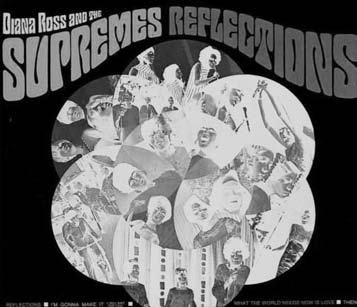
insert:Layout 1 4/22/09 11:08 AM Page 12
A seamless transition: In July 1967, Flo was out and Cindy Birdsong in. Supremes fans didn’t notice a difference in their dazzling act, which continued on at venues such as here at Berns Nightclub in Stockholm, Sweden. Few knew that only Diana was now singing on their records.
Courtesy of Tom
Ingrassia Productions
While Flo sang on the
Reflections
album, one wouldn’t have known it by the cover
when it came out in early 1968 and
Cindy Birdsong was the only “third Su -
preme” in a photo montage with Diana
and Mary—the start of Motown’s revi-
sion of history to erase Flo from the past.
From the author’s collection
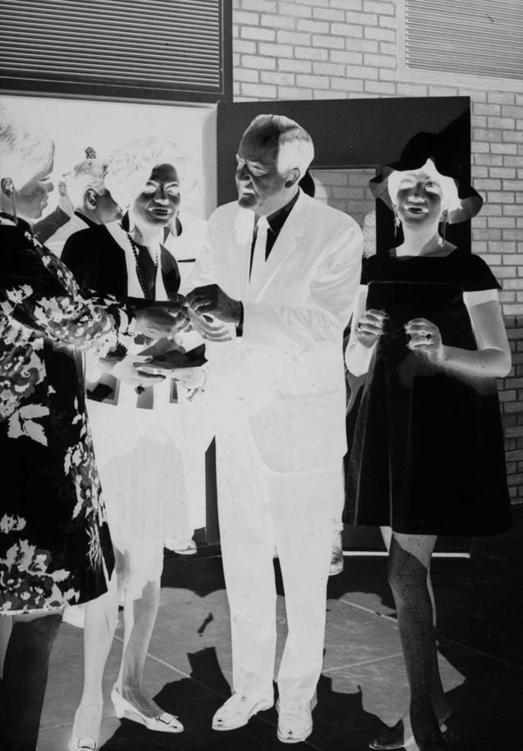
insert:Layout 1 4/22/09 11:08 AM Page 13
Political theater: The Supremes throw their weight behind Hubert Humphrey for president in 1968, but they couldn’t quite take him to number one.
Courtesy of Tom Ingrassia Productions
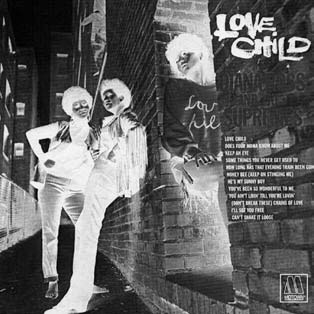
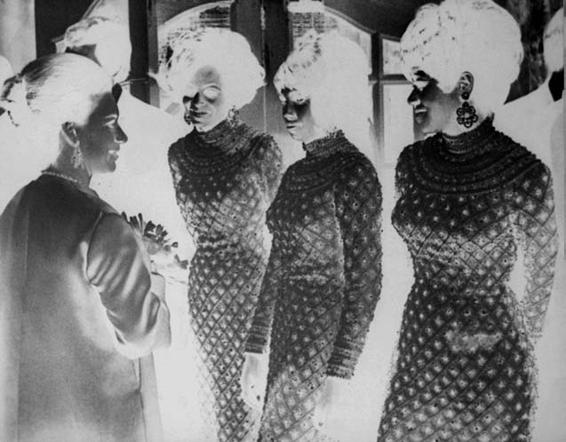
insert:Layout 1 4/22/09 11:08 AM Page 14
Trying to keep in step with the socially conscious times, the girls traded high fashion for ghetto chic on the cover of their November
1967
Love Child
album. While Diana passed off the jarring image of her in a sweatshirt and torn cutoff jeans as an “act,” it was convincing enough to take the title track to number one.
From the author’s collection
Pop and circumstance: America’s princesses live out a fairy tale (though Mary seems somewhat unimpressed) as they’re greeted by Princess Margaret during a November 1968 tour of England.
Courtesy of Tom Ingrassia Productions
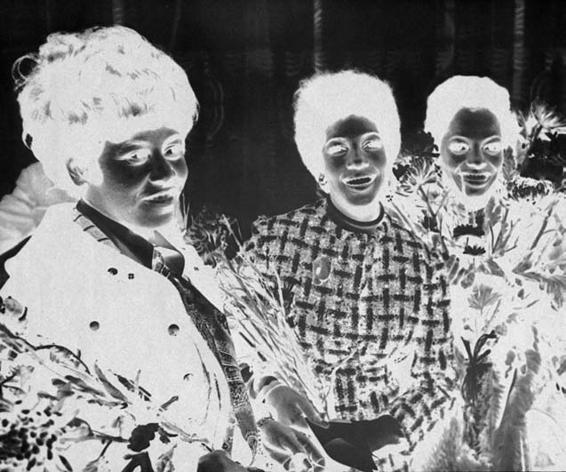
insert:Layout 1 4/22/09 11:08 AM Page 15
Appearing somewhat haggard and a good deal less glamorous than usual, the road-weary Supremes arrive at Stockholm’s Arlanda Airport in November 1968. And there was still a year of exhaustion and aggravation to come.
Courtesy of Tom Ingrassia Productions
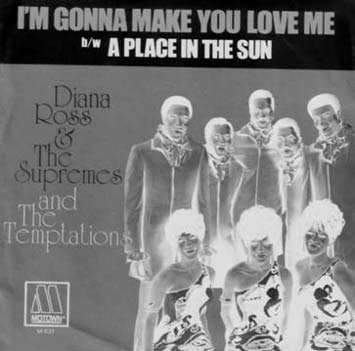
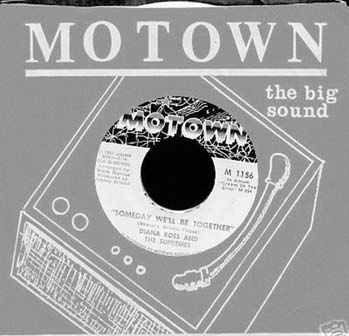
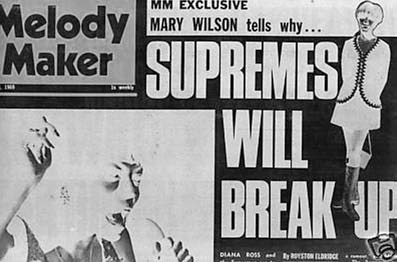
insert:Layout 1 4/22/09 11:08 AM Page 16
Even across the pond, the burning is-
sue of 1969 was making headlines in
the papers.
From the author’s collection
While plans moved forward for Diana’s solo career, Motown squeezed
every last drop out of the Supremes
by pairing them on two TV specials,
four albums, and four singles with
another hot act, the Temptations.
The juiciest was “I’m Gonna Make
You Love Me,” which hit number
two on the pop and R&B charts in
early 1969.
Courtesy of John J. Grecco,
Red Bird Entertainment Inc.
The last gasp for the Supremes—the
result of a happy accident—allowed
the Supremes to go out on a high
note, when “Someday We’ll Be To-
gether” went to the top of the charts
at the end of 1969 just as they gave
their final performance. While their
legion of fans have held out hope
ever since, the title would not be
prophetic.
From the author’s collection
0306815867_ribowsky:6.125 x 9.25 4/22/09 11:06 AM Page 201
“ECSTASY TO THE TENTH POWER”
201
tique four-poster beds he was sleeping in. The romance of escorting his leading lady over hill and dale and polo grounds intoxicated both of them. Concurrently, most in the company actually came to detest England—no one more than Flo, who for all the grandeur of the Supremes’ own primrose lane, complained about the cold, dank weather, the bland food, the lukewarm pints of ale (she never was the champagne type), and the lack of rhythm by the British go-go dancers on the BBC show and in the nightclubs. Even for Mary, the fairy tale wore thin; later, she insisted she’d been “appalled” by, among other major inconveniences, the British toilet paper—“thick and brown, like wax paper”—and the seeming lack of a single ice cube to be found in the whole country. Her post-tour verdict was that England “wasn’t anyone’s idea of civilization [even though] people carried on about it like it was the end of the world.”
There were at least two such people on the tour—Lady and Lord Gordy. One night, the Supremes and the Vandellas were invited to London’s Top Hat nightclub to see Eartha Kitt in concert. After the show, they were taken backstage to meet the leonine Kitt, whom Ross had long called one of her idols. Reeves recalled Kitt sitting imperiously at her dressing table, “looking every inch a ‘diva’ in full command,” when Diana, not waiting to be addressed by the veteran star, made the moment about her.
Stepping ahead of others, she blurted out, “Eartha, a lot of people tell me I look like you!”
Said Reeves: “You could have heard a pin drop. Eartha said not one word in reply. In the icy silence we were all suddenly nervous and uncomfortable.” After a long pause, Kitt got up, told her mockingly, “I’m not half as beautiful as you are,” and swept out of the room.
To Martha, hardly a Ross fan before, scenes like this were really Gordy’s fault, for sequestering the Supremes, and especially Diana, from the rest of the pack—and any semblance of reality. For Reeves and most everyone else along for the ride in England, the entire experience was a downer, and traceable in retrospect as the beginning of the end of Motown as they—and Gordy, once—had known it. As a once-integral part of Gordy’s “master plan,” Reeves would rue that she’d “watched [his]
dreams grow to full realization,” only to watch him now write her out, concluding that “I never questioned his directions or his motives—
until this trip to England.”
In his reveries, for Gordy the trip would be a fantasy come to life, marking a change in his life that he regarded only as beatific, not to 0306815867_ribowsky:6.125 x 9.25 4/22/09 11:06 AM Page 202
202
THE SUPREMES
mention the release of several years of pent-up sexual frustration about his leading lady. Never mind that he had a live-in girlfriend back home, Margaret Norton—a fine-print matter that concerned him, it seemed, only when he confided to his lackeys his feelings for Diana and swore them to silence, lest Margaret hear it through the grapevine.
By his own admission, Gordy became even more enthralled with Ross in Europe. For much of the time, with eyes fixed, they took to calling each other by the bizarre pet name of “Black”—as in “Hey, Black, what are we doing today?” “Well, Black, let’s go to Buckingham Palace,” dialogue that made the rest of the company want to toss their cookies. In Manchester, he insisted that the Supremes perform the vacuous “You’re Nobody ’Til Somebody Loves You,” a recent hit by Dean Martin and the kind of mid-road potboiler he wanted them to use in their act on the way to the Copa. For weeks, the girls had rehearsed a jazzy version of it arranged by Gil Askey, a trumpet player and big-band leader who’d been named music director and conductor for their stage act. But whenever they had sung it on stage, the audience sat inert, and Diana blamed Berry for the embarrassment of the girls—and mostly her, as the leader.
